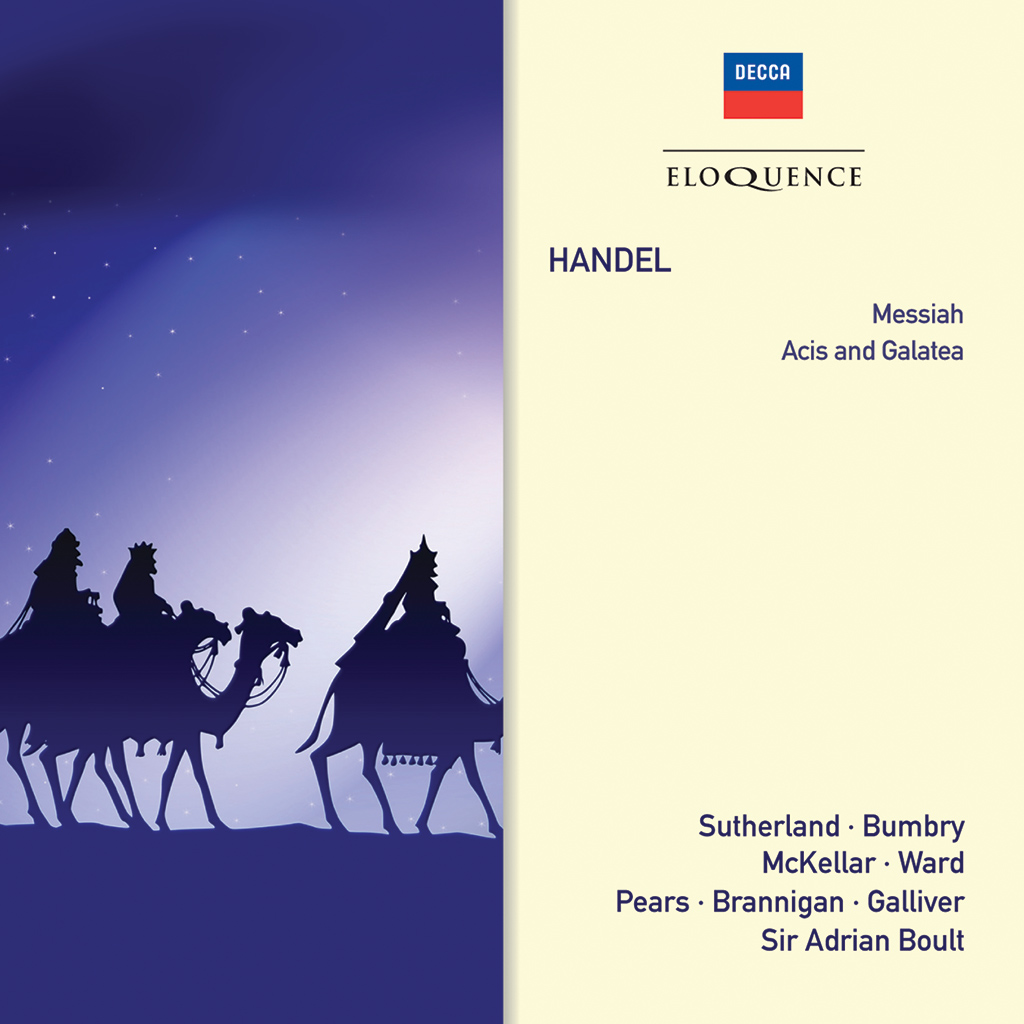Sir Adrian Boult made a selection of Decca recordings in the 1950s and 60s ranging from Baroque repertoire (Bach, Handel) to the music of the 20th century – most notably the first eight Vaughan Williams symphonies. Coupled together for the first time on CD are his two major Handel recordings for Decca – of the oratorio Messiah and the pastoral masque Acis and Galatea. Messiah is performed in unashamed grand tradition and this reissue is notable for the fact that it includes, as a bonus track, the first ever release of the tenor version of the recitative and arioso ‘Thy rebuke … Behold and see’. The alternative version for soprano was chosen for the main recording and this wonderfully pliant reading by Kenneth McKellar will come as a revelation to many. Joan Sutherland appears on both works and the rest of the cast includes several notable singers living and/or working in England at the time – Peter Pears, David Ward, Owen Brannigan and David Galliver. The booklet includes the original notes as well as full texts for both works.
HANDEL
Messiah
Alternative recitative/arioso: ‘Thy rebuke … Behold and see’*
Joan Sutherland, soprano
Grace Bumbry, alto
Kenneth McKellar, tenor*
David Ward, bass
London Symphony Chorus
London Symphony Orchestra
Sir Adrian Boult
Acis and Galatea
Alternative aria: ‘O ruddier than the cherry’°
Joan Sutherland, soprano (Galatea)
Sir Peter Pears, tenor (Acis)
Owen Brannigan, bass (Polyphemus)°
David Galliver, tenor (Damon)
St. Anthony Singers
Philomusica of London
Sir Adrian Boult
Recording Producers: James Walker (Messiah); Ray Minshull (Acis and Galatea)
Balance Engineers: Kenneth Wilkinson (Messiah); Alan Reeve (Acis and Galatea)
Recording Locations: Kingsway Hall, London, United Kingdom, May and August 1961 (Messiah); Watford Town Hall, London, United Kingdom, May and June 1959 (Acis and Galatea)
‘behind everything lies the sensibility of Boult, who brings to the performance a spiritual conviction’ (Messiah) Gramophone
‘The cast selected for this recording is excellent, and each of the four principal singers possesses a telling dramatic style as well as a fine command of phrasing and timbre … Joan Sutherland is a perfect Galatea; her voice conveys magisterially that somewhat difficult ideal – not a simple country girl, but an eighteenth-century actress playing in a slightly sophisticated manner at being what she knows perfectly well she is not. … crisp and incisive playing when it is needed, and pathos rich in sonority where the score and the sentiment demand it … special praise must go to Thurston Dart’s witty harpsichord continuo realisations, and Handel lovers of any vintage will probably enjoy Owen Brannigan’s bluff and swaggering Polyphemus. (Acis and Galatea) Gramophone

